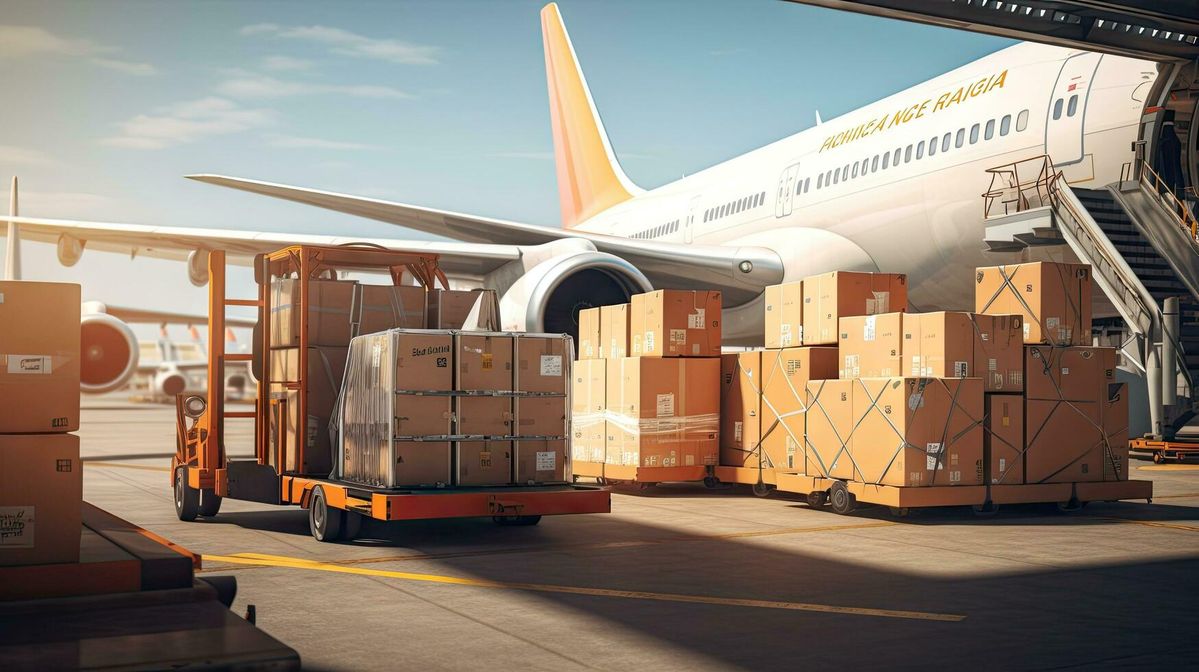Air Freight Services: An Overview
Air freight services are designed to provide fast, reliable shipping of goods and products via air transportation. These services are often used for time-sensitive deliveries, high-value items, or international shipments that need to arrive quickly. Air freight shipping services handle the logistics of transporting goods from one airport to another, including necessary documentation and customs clearance.

Introduction to Air Freight Services
In today’s fast-paced global economy, the ability to ship goods quickly and efficiently is crucial for businesses of all sizes. Air freight services have become a pivotal component in the logistics chain, offering a solution that is both swift and reliable. These services are particularly beneficial for businesses needing to transport high-value or time-sensitive items across international borders. By leveraging air transportation, companies can ensure that their products reach their destinations in a timely manner, thereby maintaining customer satisfaction and competitive advantage.
How Air Freight Services Operate
Air freight services operate through a complex network that involves multiple stakeholders, including airlines, freight forwarders, and customs brokers. The process begins with the booking of cargo space on an aircraft, which may be a commercial airline or a dedicated cargo plane. Once the booking is confirmed, the shipper must prepare the necessary documentation, such as airway bills and customs declarations, to ensure compliance with international shipping regulations.
After documentation is prepared, the goods are transported to the airport, where they undergo security checks and are loaded onto the plane. Upon arrival at the destination airport, the cargo is unloaded and goes through customs clearance. This step is crucial as it involves the inspection and approval of the goods by the local customs authorities, ensuring they meet all regulatory requirements. Once cleared, the goods are ready for delivery to the final destination.
Benefits of Using Air Freight Services
There are several advantages to using air freight services, making them a preferred choice for many businesses. One of the most significant benefits is speed. Air freight is the fastest way to transport goods internationally, allowing businesses to meet tight deadlines and reduce lead times. This is particularly important for industries such as electronics, fashion, and pharmaceuticals, where time is of the essence.
Another benefit is the reliability of air freight services. Airlines operate on fixed schedules, which means that shipments can be planned with precision, reducing the risk of delays. Additionally, air freight services offer enhanced security, as the stringent regulations and handling procedures minimize the risk of theft or damage during transit.
Challenges in Air Freight Services
Despite their many advantages, air freight services also present certain challenges. One of the primary concerns is cost. Air freight is generally more expensive than other modes of transportation, such as sea or land freight. This can be a significant consideration for businesses with tight budgets or those shipping low-value goods.
Another challenge is the environmental impact. Air transportation contributes to greenhouse gas emissions, which has led to increased scrutiny and pressure on the industry to adopt more sustainable practices. Airlines and freight forwarders are investing in technology and processes to reduce their carbon footprint, but achieving significant improvements remains a work in progress.
Future Trends in Air Freight Services
The future of air freight services is likely to be shaped by technological advancements and changing consumer expectations. The integration of digital technologies, such as blockchain and IoT, is expected to enhance transparency and efficiency in the logistics chain. These technologies can provide real-time tracking and monitoring of shipments, improving communication and decision-making for all parties involved.
Additionally, the rise of e-commerce is driving demand for faster and more flexible shipping solutions. Air freight services are being adapted to meet these needs, with a focus on last-mile delivery and customer-centric approaches. As the industry continues to evolve, air freight services will remain a critical component of global trade, facilitating the movement of goods across borders and connecting markets worldwide.







